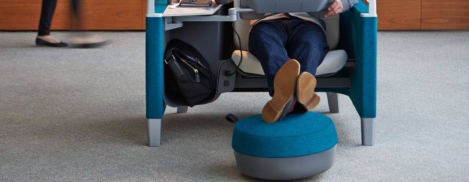August 3, 2015
More evidence of people’s growing inability to simply go on holiday 0
 If you’re reading this on holiday this week, don’t. Life’s too short. Go jump in the pool or something…. For everybody else, a slew of surveys have been published over the last few weeks that confirm something that we may already know; we are finding it increasingly hard to forget about work, even during our supposed time off and many people are forgoing holidays altogether, although not necessarily because they’ve forgotten about the off switch on their smartphone. We reported recently on one of these, from the Institute for Leadership and Management, but three more have passed over our desks over recent days. With the usual caveat about vested interests, the studies, from the TUC, alldayPA and public sector members club CSMA all confirm not only how prevalent this form of presenteeism is, but also how harmful it can be to ourselves and employers.
If you’re reading this on holiday this week, don’t. Life’s too short. Go jump in the pool or something…. For everybody else, a slew of surveys have been published over the last few weeks that confirm something that we may already know; we are finding it increasingly hard to forget about work, even during our supposed time off and many people are forgoing holidays altogether, although not necessarily because they’ve forgotten about the off switch on their smartphone. We reported recently on one of these, from the Institute for Leadership and Management, but three more have passed over our desks over recent days. With the usual caveat about vested interests, the studies, from the TUC, alldayPA and public sector members club CSMA all confirm not only how prevalent this form of presenteeism is, but also how harmful it can be to ourselves and employers.






















 TechNorth, the Manchester based technology hothouse devised as a regional counterbalance to London, is held in higher regard than the capital’s flagship TechCity development, according to research from recruitment firm Robert Half. The study of IT decision makers across the UK claims that the vast majority would prioritise working with Northern firms over their London counterparts, with 87 percent either ‘highly likely’ or ‘somewhat likely’ to place work with IT businesses in the TechNorth hub rather than those in TechCity London given the choice. The figure is 100 percent for IT leaders based in the North and to 95 percent for those in Scotland. More surprisingly, 80 percent of those based London and the South East said they would prioritise TechNorth, as did 75 percent in the South West and Wales.
TechNorth, the Manchester based technology hothouse devised as a regional counterbalance to London, is held in higher regard than the capital’s flagship TechCity development, according to research from recruitment firm Robert Half. The study of IT decision makers across the UK claims that the vast majority would prioritise working with Northern firms over their London counterparts, with 87 percent either ‘highly likely’ or ‘somewhat likely’ to place work with IT businesses in the TechNorth hub rather than those in TechCity London given the choice. The figure is 100 percent for IT leaders based in the North and to 95 percent for those in Scotland. More surprisingly, 80 percent of those based London and the South East said they would prioritise TechNorth, as did 75 percent in the South West and Wales.









July 30, 2015
Far from dying out, the office is becoming more essential than ever
by Luke Finch • Comment, Technology, Workplace design
(more…)